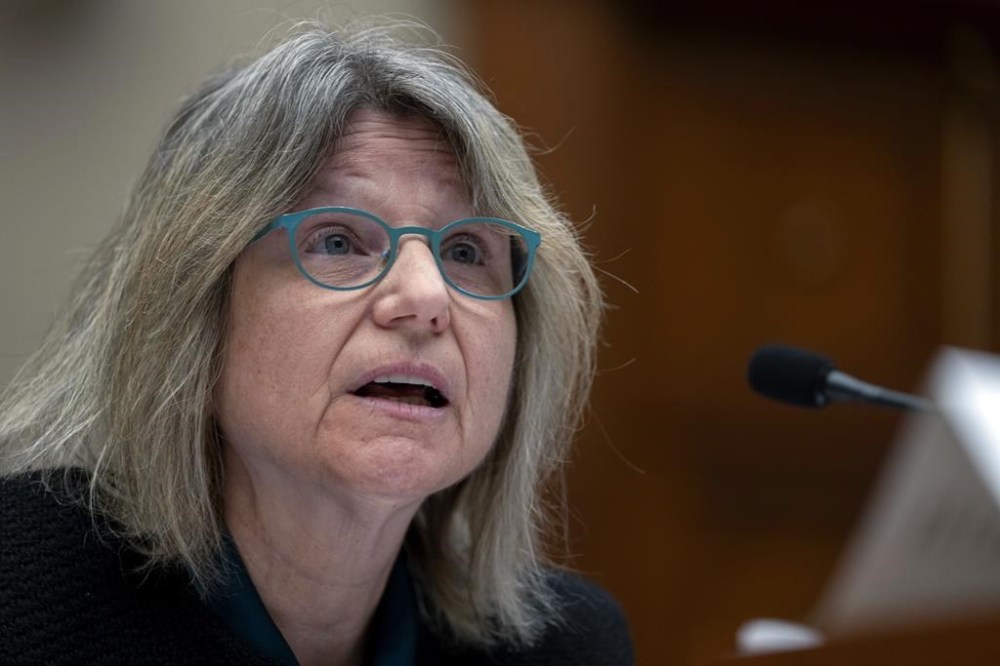MIT suspends student group that protested against Israel’s military campaign in Gaza
Advertisement
Read this article for free:
or
Already have an account? Log in here »
To continue reading, please subscribe:
Monthly Digital Subscription
$0 for the first 4 weeks*
- Enjoy unlimited reading on winnipegfreepress.com
- Read the E-Edition, our digital replica newspaper
- Access News Break, our award-winning app
- Play interactive puzzles
*No charge for 4 weeks then price increases to the regular rate of $19.00 plus GST every four weeks. Offer available to new and qualified returning subscribers only. Cancel any time.
Monthly Digital Subscription
$4.75/week*
- Enjoy unlimited reading on winnipegfreepress.com
- Read the E-Edition, our digital replica newspaper
- Access News Break, our award-winning app
- Play interactive puzzles
*Billed as $19 plus GST every four weeks. Cancel any time.
To continue reading, please subscribe:
Add Free Press access to your Brandon Sun subscription for only an additional
$1 for the first 4 weeks*
*Your next subscription payment will increase by $1.00 and you will be charged $16.99 plus GST for four weeks. After four weeks, your payment will increase to $23.99 plus GST every four weeks.
Read unlimited articles for free today:
or
Already have an account? Log in here »
Hey there, time traveller!
This article was published 14/02/2024 (647 days ago), so information in it may no longer be current.
BOSTON (AP) — The president of MIT has suspended a student group that has held demonstrations against Israel’s military campaign in Gaza as protests over the war continue to rattle universities around the country.
In a video statement Tuesday, Sally Kornbluth said the group, Coalition Against Apartheid or CAA, held a demonstration Monday night without going through the university’s permission process required of all groups. The protest was against the Israeli military’s possible ground invasion of Rafah, the city on the southern Gaza border where 1.4 million Palestinians have fled to escape fighting elsewhere in the monthslong war.
As a result, the group received a letter Tuesday advising that its privileges as a student group would be suspended. It will not get any kind of funding that student group’s normally get nor will it be able to use MIT facilities nor hold any demonstrations on campus.

“I want to be clear: suspending the CAA is not related to the content of their speech,” Kornbluth said.
“I fully support the right of everyone on our campus to express their views. However, we have clear, reasonable time, place and manner policies for good reason,” she said. “The point of these policies is to make sure that members of the MIT community can work, learn and do their work on campus without disruption. We also need to keep the community safe.”
The CAA, in a statement, demanded that they be reinstated and called MIT’s move an attack on its right to fight for what it said was “Palestinian liberation.” It also said that 13 student organizers had individually been threatened with permanent suspension from MIT.
The president didn’t address such disciplinary action against student organizers in her video messages.
“For over four months, the MIT administration has continued to silence our voices by applying unjust punitive measures to our actions,” the group said of its response to what it called “genocide perpetrated by the Israeli occupation in Palestine.”
“These attacks on our right to protest are not only suppressive but expose the moral failure and desperation of the administration,” the group added.
The statement against their suspension was signed by Jewish Voice for Peace Boston and more than a hundred other groups around the country.
The war began with Hamas’ assault into Israel on Oct. 7, in which the militants killed about 1,200 people, mostly civilians, and abducted around 250. The overall Palestinian death toll in Gaza has now surpassed 28,000 people, according to the Health Ministry in Gaza, and a quarter of the territory’s residents are starving.
Protests over the war have roiled campuses across the U.S. and reignited a debate over free speech. College presidents and other leaders have struggled to articulate when political speech crosses into harassment and discrimination, with both Jewish and Arab students raising concerns that their schools are doing too little to protect them.
The issue took center stage in December when the presidents of Harvard, University of Pennsylvania and MIT testified at a congressional hearing about antisemitism on-campus. A Republican lawmaker equated the use of the word “intifada” with calling for the genocide of Jewish people, and then asked if such rhetoric violates campus policies. The presidents offered lawyerly answers and declined to say unequivocally that it was prohibited speech.
Their answers prompted weeks of backlash from donors and alumni, ultimately leading to the resignations of Liz Magill at Penn and Claudine Gay at Harvard.


